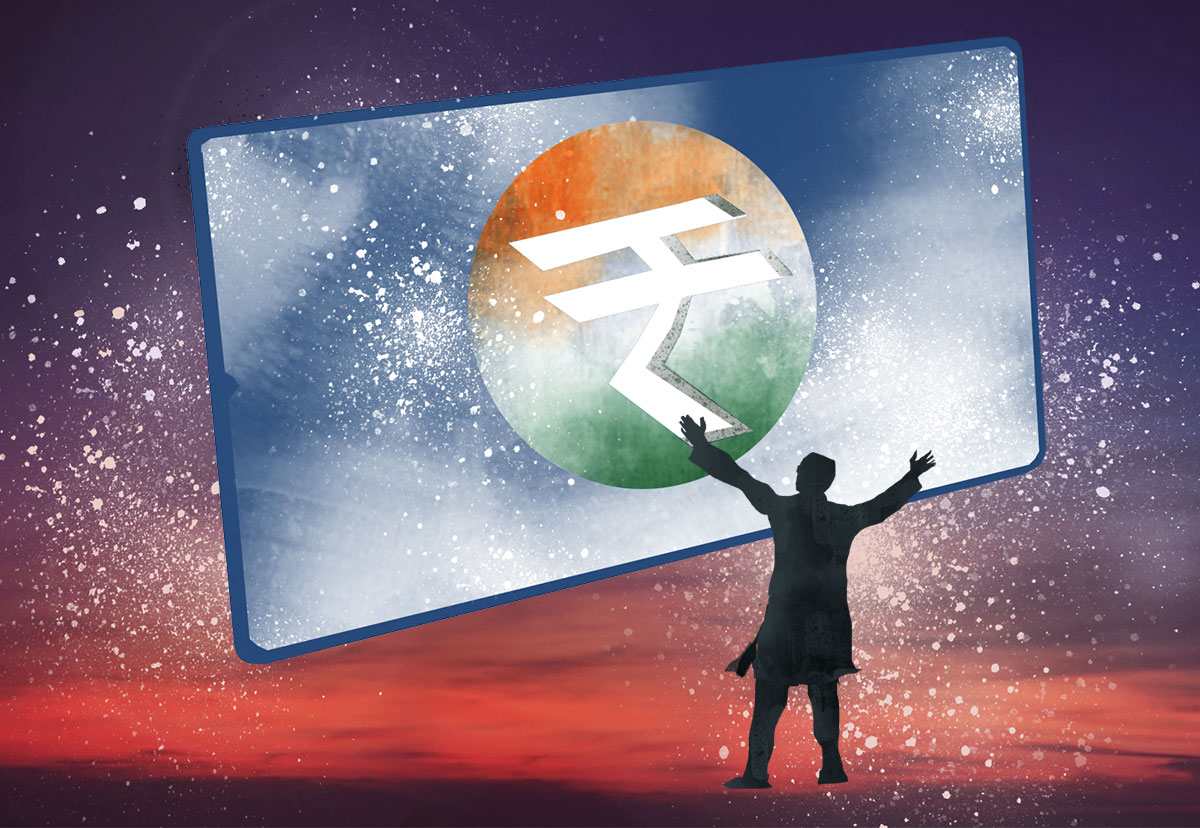'The Digital Rupee will be equal to the Indian rupee in value and backed by the full faith and credit of the RBI/Indian government.'

Pranav Sharma, founding partner, Woodstock Fund, responds to Prasanna D Zore/Rediff.com's queries about how the Digital Rupee -- proposed in the Union Budget 2022-2023 -- will shape up, its pros and cons, and how different it will be from paper currency and digital payments that we are so used to.
What is Digital Rupee all about? How will it help Indians?
The Digital Rupee is a Central Bank Digital Currency (CBDC) that will bring about greater transparency and efficiency (due to underlying blockchain technology), thus propagating financial inclusion and effective implementation of fiscal and monetary policy in a large democracy like India.
To the end user it will provide more convenience and security.
Most countries are evaluating the possibility of issuing a CBDC -- the intention usually is to issue a CBDC domestically and then scale for international commerce.
How will the Digital Rupee get its value? What asset/assets will back the Indian Digital Rupee?
The Digital Rupee will be equal to the Indian rupee in value and backed by the full faith and credit of the RBI/Indian government.
How will the Digital Rupee get legal backing? What laws will the government need to amend to introduce the Digital Rupee as legal currency?
In general, existing legal frameworks will become more effective and enforceable as there will be superior visibility and surveillance of transactions. There are unknowns that will unravel over a span of time.
What are 5 most important things every Indian must know about the Digital Rupee?
- It makes governments (allocation, taxation and internal collaboration) more efficient
- It makes governance more efficient
- It makes transmission of subsidies and grants more efficient
- It enhances security
- It enhances convenience
What is BlockChain technology based on which the Digital Rupee will be designed?
More details have to emerge. This will be implementation of private blockchain technology.
How can RBI act as an enabler of the Digital Rupee?
RBI is an issuer looking at bringing more transparency into the Indian economy. My guess would be that transparency reports to the public at large on implementation and transmission of the Digital Rupee would go a long way in creating a participative system.
How will a sovereign digital currency -- the Digital Rupee -- be different from cryptocurrencies?
Both are crypto (slang) as both are cryptographically secured. Both are digital assets.
What is different in terms of their implementation is that most of the digital assets in the public domain are implementations on public blockchains like Bitcoin, Ethereum, etc. While, CBDCs (and thus Digital Rupee) will be a private blockchain implementation.
CBDCs will have the features of blockchain technology around transparency, but will be centralised in terms of implementation.
How will the Digital Rupee be different in its functionality from physical rupee or digital payment that is so popular today?
Broadly speaking:
- Cash is convenient in some ways, but it is ineffective in transmission and distribution.
- Digital payments is convenient and effective in transmission and distribution.
- Digital Rupee is convenient, secure and efficient in both transmission and distribution (even peer to peer).
Digital Rupee: The pros and cons
Pros have been highlighted above -- convenient, secure, efficient, promotes financial inclusion, and reduces counterparty risk.
Cons are centralised implementation, privacy issues (possibilities of compromise), legal & regulatory issues (yet to unfold), unknown impact on countries that don't have full capital account convertibility (due to trade deficit or local economic challenges).
Feature Presentation: Ashish Narsale/Rediff.com












 © 2025
© 2025